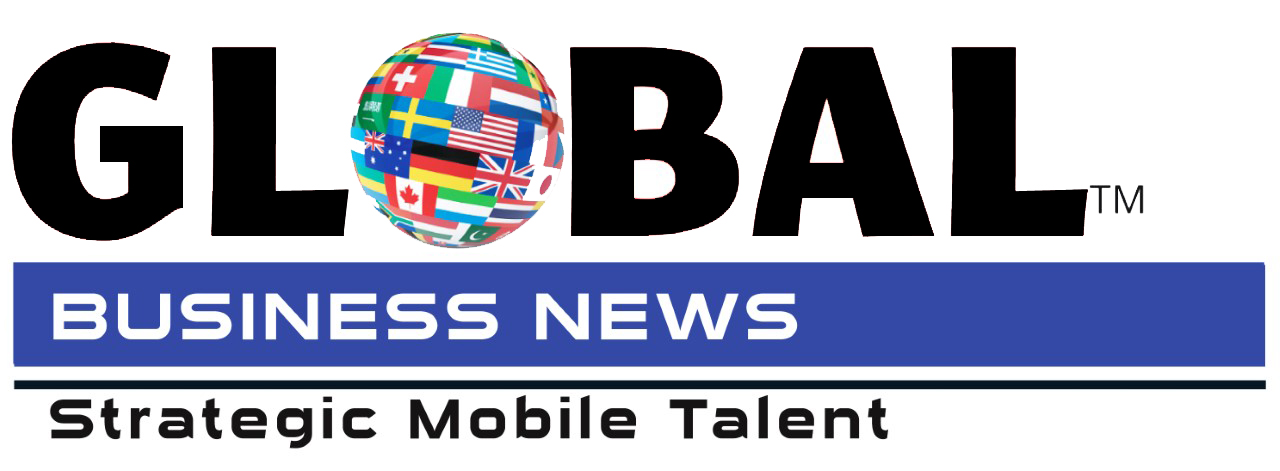
PHASE 2
Ask yourself these questions:
• Are you confidently able to demonstrate and explain the value of your firm’s global
mobility program to your firm’s top leadership consistently and succinctly?
• Are you able to reliably and consistently measure the value your program brings to
enable your firm to leverage its unique resources for improved global
competitiveness?
• Can you identify the specific value propositions of your firm’s global mobility
program that directly contribute to your firm’s ongoing success and market value?
• Are you currently able to authoritatively and concisely present to your corporate
leadership how expatriate return on investment (expat ROI) can be described,
measured, and presented for its successful impact in leveraging your firm’s
resources for global market leadership?
If you answered no, or are unsure about any of these questions, there is an opportunity for
you to participate in the second phase of the study that is seeking to define the role the
international assignment has for precisely these purposes.
Phase two focuses solely on the
global mobility or global human resources professional in the born-global firm, so there is
no further engagement with assignees for this phase of the study.
Phase one findings are already producing novel and fascinating results for assessing
assignment value versus assignment costs: thereby defining those potential, but heretofore,
always elusive ROI measures.
This innovative approach is providing a template that will
assist global mobility professionals to advocate effectively and earn their place in their
firm’s global strategy discussions.
Please contact Dale Collins at email: dale.collins@du.edu for further information and be
among the select mobility professionals that will redefine global mobility going forward
and secure that coveted role within your firm’s top management team
phase 1
ATTENTION:
Global Mobility Professionals Across the World
Your Chance to Demonstrate the Value of Your Global
Mobility Program to your Corporate Leadership and Key
Stakeholders is Now Possible
Ask yourself these questions:
• Are you confidently able to demonstrate and explain the value of your firm’s
global mobility program to your firm’s top leadership and key corporate
stakeholders consistently and succinctly?
• Are you able to reliably and consistently measure the value your program
brings to enable your firm to leverage its unique resources for improved
global competitiveness?
• Can you identify the specific value propositions that exist because of your
program’s global expatriate assignments before, during, and after assignment
that directly contribute to your firm’s ongoing success and market value?
• Are you currently able to authoritatively and concisely present to your
corporate leadership how expatriate return on investment, expat ROI, can be
described, measured, and presented for its successful impact in leveraging
your firm’s resources for global market leadership?
If you answered no, or are unsure about any of these questions, there is an
opportunity for you to participate in the study that is seeking to define the role the
international assignment has for precisely these purposes.
Preliminary findings are already producing novel and fascinating results for
assessing assignment value versus assignment costs; thereby defining those
potential, but heretofore, always elusive ROI measures. This innovative approach
is providing a template that will enable global mobility professionals to earn their
place along with the firm’s top leadership in global strategy discussions.
Qualifying firms that are being sought for the study must meet these criteria
1. Created in the year 2003 or later
2. Began as an independent start up company, not a spin off or subsidiary of a
large multinational company
3. Have expanded international since creation to at least two international
locations outside its home country anywhere in the world
4. Ability to communicate with the researcher in English
Please contact Dale Collins at email: dale.collins@du.edu for further information
and be among the select mobility professionals that will change global mobility
going forward and secure that coveted place among your firm’s executive leaders.
Monique Raupp, PhD
Global Mobility Senior Associate
Coming from a strong knowledge-intensive and strategic professional background on global mobility & cross-cultural management; considering my international experiences living and working in 6 different countries; and having a strong multicultural passion, I am able to bring a fresh and innovative perspective to the fast-paced industry of global mobility. I am a natural communicator, passionate speaker, team-worker, and internationally mobile individual. Interested in hearing more about this rather unusual experience and skills combination in relation to global mobility? Let’s talk!
Heather / DUAL-CAREER DILEMMA / SOLUTIONS
Click here to add your own text
Click here to add your own text
Click here to add your own text
LONDON GLOBAL BUSINESS
1 OCT
KEYOTE panel, “Stakeholders Join GM to map/design Assignments to Achieve ROI”
…inside the global trade bank, HSBC, hq Canary Wharf.

But many people don’t know how to find a mentor or establish a relationship.
Summary.
While 76% of working professionals believe that a mentor is important to growth, more than 54% do not have such a relationship.
If you’re one of these people, there are a few things you can do to find a mentor and build a strong relationship:
define your goals and specific needs;
write a “job description” for your ideal mentor;
search for mentors through your second-degree network;
make the ask (and keep it simple);
have a first meeting;
create a mentorship agreement;
and follow up to say thank you over the long term.

The following 8 steps can help.
1. Define your goals and specific needs.
Get out a pen and paper, and write out your career goals.
Make sure they are SMART. Then, list out some of the biggest obstacles to achieving them.
This specificity will help you decide what type of mentor you should be looking for.
Maybe you need to develop new skills, expand your network in a specific sector, or build confidence to have some tough conversations.
By first understanding where you want to be, as well as the biggest opportunities and gaps to getting there, you’ll identify how a mentor can truly be helpful to you.
2. Write the “job description” of your ideal mentor.
Equipped with your goals and what you need to help achieve them, think through how a mentor can help. Write out the type of mentor that can help you seize your biggest opportunities and/or navigate your challenges. Be specific here.
Perhaps you need someone that can help you accomplish a project, make introductions to people at a certain level within a specific industry, or coach you through a tough negotiation.
In your job description, make sure to also include the “why” – just like companies want potential hires to understand the bigger purpose of their firm, explain why mentoring you will tap into something bigger. Make sure you include this job description when you reach out to potential mentors, so they know why you’re asking for a mentor and are more willing to help (covered in the 4th and 5th steps).
3. Search for mentors through your second-degree network.
Mentors can be from anywhere.
They can be from your LinkedIn network, professional connections, or people you’ve met at conferences.
It’s important to remember that while people are certainly busy, being asked to be a mentor is a massive compliment.
People might say no, but it will be a positive exchange and you shouldn’t be shy about thinking big and making the asks, even if you think there is no way the person can find time for you.
Let them be the judge of that.

Asking someone to be your mentor the first time, second time, and even third time is a little awkward.
It’s likely you’ve never been asked to mentor someone else, nor taught how to make the ask for yourself.
Embrace the uncomfortable feeling and be vulnerable.
There is no harm that can come from asking, but take it slow.
Ask someone for a first conversation to learn more about their work and interests.
Once you learn more about each other, if there is an alignment, then make the bigger ask for mentorship.
Asking someone cold to be a mentor with a long email is too much to take in.
5. Have a first meeting.
You have two goals for your first conversation with your potential mentor.
First, you need to determine if this person is really the right mentor for you.
Then, find out whether they are open to the idea of mentoring you.
How you approach the conversation will depend on you, but in general, you’ll want to do these few things:
- Make it easy for the person. Go to a location convenient for them, have a coffee (or tea) waiting, come prepared, and make the meeting no-pressure and comfortable.
- Spend time getting to know the person. You probably want to talk less than 30% of the time.
- It’s okay to ask for small favors out of the gate. In fact, it might even help you build the relationship.
- Make a clear ask: “I’ve really enjoyed this conversation. Would it be okay if I followed up with you again in one month after I make some progress towards my goals?”
- Say thank you, and then follow-up again over email to say thank you again.
6. Start simply.
For your next meeting, keep it simple and follow up based on your last encounter.
Once the person confirms they will meet with you again, send an email proposing an agenda and hinting at the idea of a longer-term relationship.
Something like: “In our next chat, I hope we have a quick catch-up, and then I’d love to further expand on our conversation from last time.
I’ll come prepared with some specific questions that I think you could help me answer.”
 7. Create a structured accountability process with a mentorship agreement.
7. Create a structured accountability process with a mentorship agreement.
After you have a simple conversation or two, try making a more formal ask:
Would the person be willing to sit down with you once a month for the next six months until you achieve your goal or solve your problem?
If so, then consider creating a simple one-page document outlining what you will accomplish in those six months together. While it might seem a bit overkill, it will help add clarity to you and to your mentor by helping share the goal of the relationship. It will also help you set a clear agenda for each meeting.
You can suggest it by saying: “I truly appreciate your time, and I really want to make sure I’m making the most of it.
I was thinking that I could prepare a simple document that would share my goals with you, my commitment to you, and what milestones I hope to achieve in the next three months.
I think it will help hold me accountable to come prepared to our conversations.
Would you be okay with that?”
8. Continue to follow-up and say thank you.
You should definitely send a thank-you note after every meeting.
Beyond that, once your mentorship arrangement comes to a close, you should continue to say thanks.
I once had a mentee email me two years after our partnership. It made my week!
In exchange, I was also able to help make some new and interesting connections, and she the same.
So remember, it’s okay to ask for a favor, just make sure to show proper appreciation!
Featured session with Heather Cafe Coach
Accountability is critical for meeting deadlines, hitting targets, and growing revenues. It’s about fostering a mindset that encourages growth and trust, not assigning blame.
Cultivate these three habits to enhance accountability — compassionately — on your team.
Think ahead.
When assigning work, visualize the tasks and anticipate the challenges you expect to come up, then talk through them with your employee.
By clearly communicating expectations and potential obstacles, you’ll increase their chance of success.
Own your commitments.
Set the tone and build trust with your team by following through on the promises you make. Consistently meeting deadlines and fulfilling responsibilities models accountability, so if you set a deadline, stick to it.
This consistency prevents disengagement and promotes a culture of reliability and mutual respect.
Focus on solutions.
When mistakes occur, focus on learning and growth, not blame.
Encourage a team-oriented approach to problem-solving.
Discuss what actions can move the project forward, and involve everyone in the solution.
This non-punitive mindset fosters psychological safety and continuous development — even through failure.
Read the full article:
We are LINKMAKERS™ ... You are invited; please join us. Register to attend/participate in-person or virtual text (+1) 619 787 3100 email publisher@globalbusiness.media


LONDON
1 OCTOBER 24

HOST / FACILITATOR
SPONSOR & ADVISOR
https://www.hsbc.com/who-we-are/purpose-values-and-strategy
Why we exist
We’re here to use our unique expertise, capabilities, breadth and perspectives to open up new kinds of opportunity for our customers.
We’re bringing together the people, ideas and capital that nurture progress and growth, helping to create a better world – for our customers, our people, our investors, our communities and the planet we all share.
Our purpose – Opening up a world of opportunity – explains why we exist.

INTERNATIONAL & CORPORATE RELOCATIONS
The AGS Philosophy is simple:
to design corporate relocation services revolving around our customers.
The AGS Relocation company provides a wide range of global mobility services
to multinational organisations with expert international relocation services,
tailored to meet each of our clients’ unique needs.
 Memo from conference developer/producer/moderator, Ed Cohen:
Memo from conference developer/producer/moderator, Ed Cohen:
Welcome to edition 4.
I am honoured and fortunate to have the continued support and guidance by the global trade bank HSBC and also by AGS Worldwide … so that I could be able to develop and produce, moderate and then distribute and market the educational contents of this unique business meeting happening in-person + virtual 1 OCTOBER.
General Registration fee 99 USD, in-person or virtual.
Complimentary Registration for all invited corporate participants.
Questions or Comments?
To secure your space / access simply text me (+1) 619.787.3100 or email me using publisher@globalbusiness.media.
I will respond with an electronic invoice for secure card processing.
Thank You and a very warm welcome into my happy place

Click here to add your own text
Click here to add your own text
Click here to add your own text
Click here to add your own text
Click here to add your own text
Click here to see what’s on
GLOBAL–TVtalkshow right now!
Click here to add your own text




My story is the story of migration. As a child who followed my parents, without any say or agency in the process. As an adult who actively sought new opportunities. All my moves were planned with the unwavering support of my parents all along and my friends and teams as I grew older. These experiences have brought me much joy and a love for adventure, which I would not trade for anything else but as with all things in life they have come with their share of challenges and lows. With all that is happening in the world, I hope that sharing my story will raise awareness towards the experience of many children growing up across borders, so we embrace everyone beyond their nationality and accept them for their unique identity.
Looking back, the story of who I am has defined what I do – I work with organisations, helping them and their global workforce navigate this ever changing world. So, I often get asked if technological advances will reduce the movement of people. My view is that people move towards a safer, better life and towards new experiences – they always have and they always will. Case in point is my own story, that I worked on, with the lovely people at Expat Valley whose cause is close to my heart. Expat Valley believes that international migration should be an enriching experience that allows children to thrive and works to encourage conscious inclusion of children’s needs and wellbeing when their parent(s) are moving across borders. Telling my story has been an adventure in itself, one that was made possible by Matthijs de Rave introducing me to Karlijn Jacobs, who created the storyline and worked with Idris van Heffen who created the lovely visual. Of course, this would not have happened without Krithika Ragunathan and Rumi Das who were my champions throughout the process! I will always be grateful to them for this and for finding a friend in Karlijn. 🙂 hashtag#makeanimpactthatmatters hashtag#globalworkforceconsulting hashtag#foreverychild